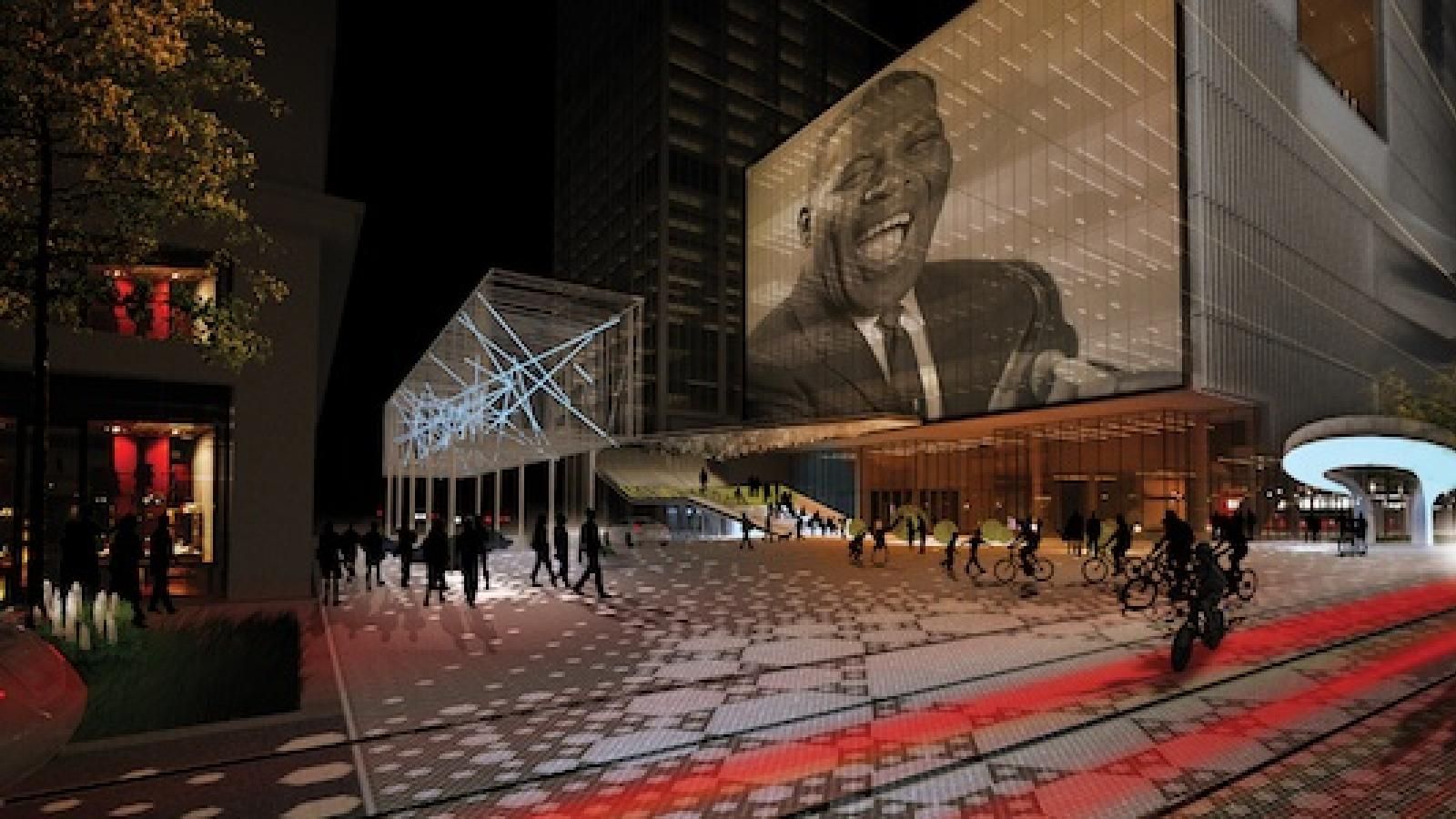Looking Forward to the Next Phase of Creative Placemaking

Today is a big day for creative placemaking here at the Arts Endowment, as we are launching some long- anticipated new resources for folks around the country who care about arts-based community development. They include the Exploring Our Town online resource, the pilot of a funding stream to support discipline-specific knowledge networks around creative placemaking, and a convening hosted by the NEA Design team and Art Place America to explore the relationship between performing arts and place. You can read about each of these developments in our News Room, and check them out here on our new creative placemaking page on arts.gov, but let me add a bit of local color and explain the thinking behind each resource.
Exploring Our Town
We are wicked excited about this one! Since we started the NEA's creative placemaking work in 2010 people have been asking us for case studies. So here you go—more than 60 of them in our Exploring Our Town online resource! You can sort them by place or project type, and there is also a nice easy map to use. Each story is organized by the same eight buckets: place, community, vision, local needs, partnership, logistics, and anticipated and unanticipated impacts. How did we come up with these? Well, we used a very nerdy social science that basically allowed us to analyze how people actually spoke about their projects, and how they told their stories. These eight categories were the ones that rose to the top. We hope to add more stories soon!
We are also very excited about the Insights pages as they allow us to give voice to the lessons learned by the project managers about how to do placemaking work. You can learn about their work process in the 'By Project Process' section, read lessons on how to do specific project types in 'By Project Type,' and explore the experience of working in different kinds of places in 'By Project Setting.' Plus we link to all kinds of useful resources.
New Knowledge Building Our Town Guidelines
So we have been a little obsessed lately with how people learn. How does that smart opera manager who wants to do a community project get the information they need to work in the neighborhood? Where does an ambitious young community development corporation employee who wants to do a piece of public art or a festival start?
If we accept the fact that art-based community development strategies are understood and can be taught, how do we get that information into peoples' hands? Training? Mentorships? Online resources?
Also, different fields have different language they use around this work—a ballet director talks about “place” differently from a traffic engineer.
Additionally, we do not believe that the NEA can itself create resources for every field that impacts place, since we use a certain arts-based language ourselves that does not always translate for each discipline.
Our experience suggests that membership organizations (service organizations, industry associations) are a place where people go to get current information. We want to create an opportunity for those networks to develop knowledge about arts-based community development in their own language for their own network. So, we've created a limited pilot project in the Our Town guidelines this year to fund just that kind of thinking and development. Want to know more? Listen in to our webinar on October 6th at 3:00 PM ET.
Beyond the Building: Performing Arts and Transforming Place
On November 3, 2014 the NEA, with support from ArtPlace America, will host a gathering to explore the role of the performing arts in transforming places, people's relationships with their communities, and community development processes. The purpose of this convening is to develop a better understanding of how performance-based organizations, and the artists they engage, transform places through their artistic practices. It will bring together a diverse range of performing arts practitioners and supporters from dance to ballet, opera, theater, choruses and symphonies, creating an opportunity to connect, share experiences, and exchange key points of view that will benefit individual and collective practices.
The goals are to discuss the range of community engagement and development strategies that performing arts organizations employ, discuss any language differences that might be excluding performing arts groups from the placemaking conversation, and to discuss the opportunities and challenges for performing artists or organizations who seek to engage in this work. We look forward to learning from the field in a fun and informative conversation. Stay tuned for information.
The Future
We are currently deepening our federal partnerships, building upon years of work to coordinate engagements around place in communities (more on that in a future blog). To that end, we are looking post-launch at where the best next step is for our agency to support those Americans who wish to engage in arts-based community development work. As I mentioned in an earlier blog this year, we are deeply interested in knowing more about how individual artists engage in these activities and about how these techniques tie into equitable development strategies which create opportunity for all.
On the artist front, we have been attempting to map the field of support for artists interested in social impact, and have turned over some rocks and dug deeper into resources like Animating Democracy's Landscape, Springboard for the Arts' Creative Exchange, Alternate Roots, and Creative Time's Summits on art and social justice, to name a few. We are excited to see so many people focused on helping America's artists work on improving the country.
To wrap up—a quick plea for feedback and participation. We are only as good as what we hear from the public so please keep talking/tweeting/blogging to us! Tell us what is working and what is not in the creative placemaking field. And if you think we left off a good resource on the storybook for arts-based community development, just let us know and we'll take a look. You can reach us at OT@arts.gov.




